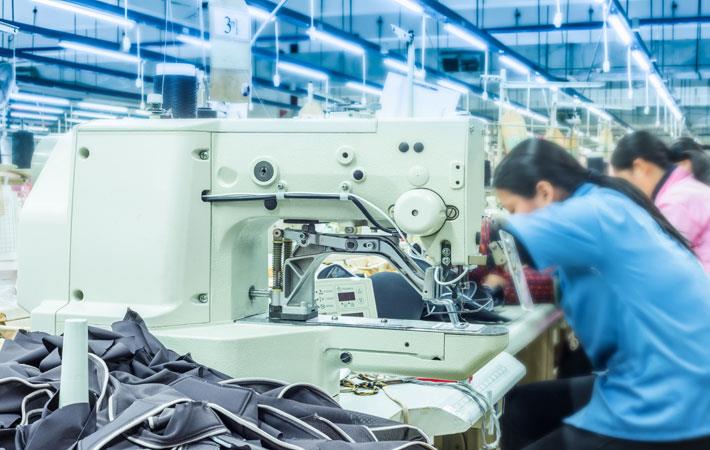Interviews
Global organisations urge brands to protect workers
21 Mar '20
3 min read

Pic: Shutterstock
Amsterdam-based Clean Clothes Campaign, the International Labour Rights Forum and the Worker Rights Consortium, both based in Washington, DC, and the Maquila Solidarity Network headquartered in Toronto recently urged all clothing brands to take immediate proactive steps to protect workers who make their goods in the face of the COVID-19 pandemic.
“Brands must take responsibility for workers throughout their supply chains and ensure that the garment workers who have made their profits possible do not carry the industry’s financial burden during this pandemic,” the organisations said in a joint statement.
Due to their low wages and widespread repression of freedom of association rights, garment workers already live in precarious situations and the economic fallout of the pandemic is having far-reaching consequences, they feel.
Factory closures in many countries, such as Sri Lanka, Bangladesh, Indonesia, Albania and those in Central America—whether temporary or permanent—are hitting low-paid garment workers hard, especially migrant workers who might not have local social networks to rely on and could face additional restrictions or xenophobia, the statement said.
The situation has been especially dire for weeks already in Cambodia and Myanmar. Approximately 10 per cent of garment factories in the Yangon region of Myanmar are now temporarily closed, and garment workers are not being paid their salaries. In Myanmar, workers are owed severance pay if the factory closure lasts beyond three months; however, severance pay itself only amounts to half a month’s salary per year employed in a factory, after an initial six months probation period.
Many factories in Myanmar only opened in the past five years, and the turnover of workers is very high, meaning many workers will be left with nothing, the statement said.
Factory shutdowns are also being used to quell labour organising throughout the country, the statement added.
Garment workers also fear that the coronavirus will impact on their right to paid public holidays.
The picture in Cambodia is similarly concerning, and tens of thousands of garment workers could lose their jobs in the coming weeks if the raw materials situation does not improve. Government reports now suggest that workers could receive 60 per cent of the minimum wage for six months. However, some factories have suspended workers without authorisation.
The statement further said the brands must ensure that their supplier factories follow government requirements or recommendations regarding the suspension of large gatherings and close factories as necessary for the appropriate duration to protect the health of workers and their communities, while maintaining all workers' contracts and payment of their full regular wages.
They should also ensure that workers who are sent home because of a lack of work are compensated at their full regular wage; workers who contract the virus, or suspect they have the virus, can take sick leave without negative repercussions and are compensated at their full regular wage during the period of recovery and self-isolation; and take steps so that measures to fight the virus do not unduly restrict workers’ freedom of movement or their freedom to organise.
“Brands must take responsibility for workers throughout their supply chains and ensure that the garment workers who have made their profits possible do not carry the industry’s financial burden during this pandemic,” the organisations said in a joint statement.
Due to their low wages and widespread repression of freedom of association rights, garment workers already live in precarious situations and the economic fallout of the pandemic is having far-reaching consequences, they feel.
Factory closures in many countries, such as Sri Lanka, Bangladesh, Indonesia, Albania and those in Central America—whether temporary or permanent—are hitting low-paid garment workers hard, especially migrant workers who might not have local social networks to rely on and could face additional restrictions or xenophobia, the statement said.
The situation has been especially dire for weeks already in Cambodia and Myanmar. Approximately 10 per cent of garment factories in the Yangon region of Myanmar are now temporarily closed, and garment workers are not being paid their salaries. In Myanmar, workers are owed severance pay if the factory closure lasts beyond three months; however, severance pay itself only amounts to half a month’s salary per year employed in a factory, after an initial six months probation period.
Many factories in Myanmar only opened in the past five years, and the turnover of workers is very high, meaning many workers will be left with nothing, the statement said.
Factory shutdowns are also being used to quell labour organising throughout the country, the statement added.
Garment workers also fear that the coronavirus will impact on their right to paid public holidays.
The picture in Cambodia is similarly concerning, and tens of thousands of garment workers could lose their jobs in the coming weeks if the raw materials situation does not improve. Government reports now suggest that workers could receive 60 per cent of the minimum wage for six months. However, some factories have suspended workers without authorisation.
The statement further said the brands must ensure that their supplier factories follow government requirements or recommendations regarding the suspension of large gatherings and close factories as necessary for the appropriate duration to protect the health of workers and their communities, while maintaining all workers' contracts and payment of their full regular wages.
They should also ensure that workers who are sent home because of a lack of work are compensated at their full regular wage; workers who contract the virus, or suspect they have the virus, can take sick leave without negative repercussions and are compensated at their full regular wage during the period of recovery and self-isolation; and take steps so that measures to fight the virus do not unduly restrict workers’ freedom of movement or their freedom to organise.
Fibre2Fashion News Desk (DS)
Popular News
Leave your Comments
C Devarajan & P Raajashekar
Texvalley
Pratik Gadia
The Yarn Bazaar - Filosha Infotech Private Limited
































-Ltd..jpg?tr=w-120,h-60,c-at_max,cm-pad_resize,bg-ffffff)





.jpg?tr=w-120,h-60,c-at_max,cm-pad_resize,bg-ffffff)
.jpg?tr=w-120,h-60,c-at_max,cm-pad_resize,bg-ffffff)






